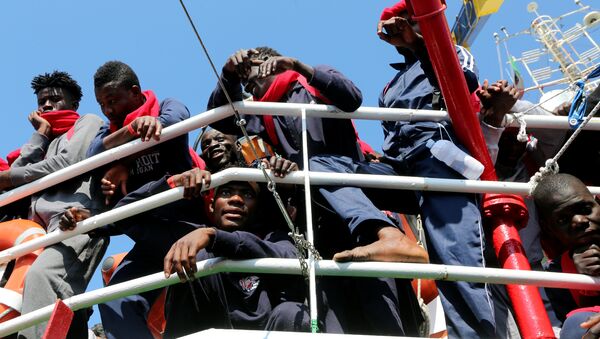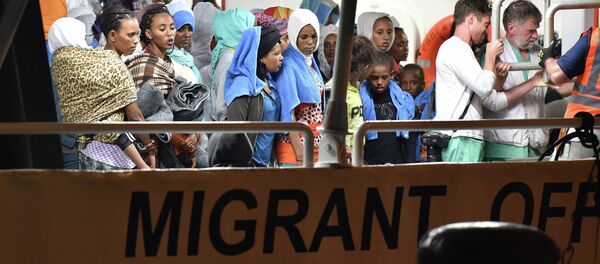Italian Prime Minister Giuseppe Conte said on Friday that the EU had failed to live up to its principles of "solidarity and responsibility" after envoys from EU states meeting in Brussels hadn’t reached a deal to distribute the 150 migrants on board an Italian coastguard ship Diciotti docked in Sicily since Monday.
Conte also said there was a gulf "between [EU’s] words and actions" that is colored by "hypocrisy."
Interior Minister Matteo Salvini, who heads the anti-immigrant League (Lega) party, has insisted the migrants will not be allowed ashore.
Salvini later took a step back from his uncompromising stance suggesting in a radio interview that some migrants from the Diciotti might be allowed ashore after it had been ascertained that they are indeed “real refugees.”
"I'm considering the possibility of carrying out identification and recognition procedures to identify real refugees, who are the minority, from fake refugees before they disembark," Salvini told state broadcaster Rai on Friday.
The European Commission said on Friday it will follow rules governing migration, rather than bow to threats.
"Let's not engage in finger-pointing. We also believe unconstructive comments, let alone threats, are not helpful and will not get us any closer to a solution. The European Union is a community of rules and it operates on the basis of rules, not threats," Commission spokesman Alexander Winterstein told a news conference.
Matteo Salvini remains defiant in the face of an investigation and says it is his job to protect the country.
"If someone is thinking about arresting me, they're mistaken, because the Italian people are asking for order, rules, respect and controlled immigration," he said.
The EU is bitterly split over the issue of how to accommodate migrants even though arrivals are down dramatically from their 2015 peak of more than a million.
READ MORE: Italy Asks EU Commission to Solve Situation Around Diciotti Migrant Vessel
Italy and Greece, who feel overrun by the flow on migrants from North Africa and the Middle East, and the EU’s eastern members, such as Poland, Hungary and the Czech Republic, refuse to host any of the new arrivals.
Europe is experiencing the most serious migrant crisis since the Second World War, caused primarily by a number of armed conflicts and acute economic problems in Africa and the Middle East.
The new Italian government has declared the fight against illegal migration one of its main priorities.




